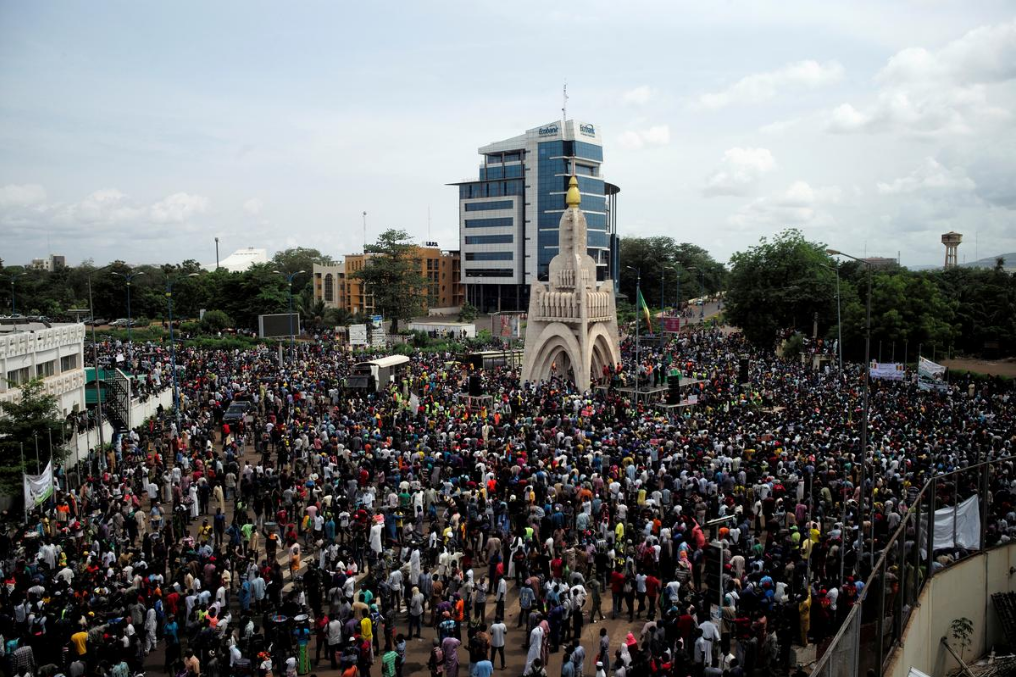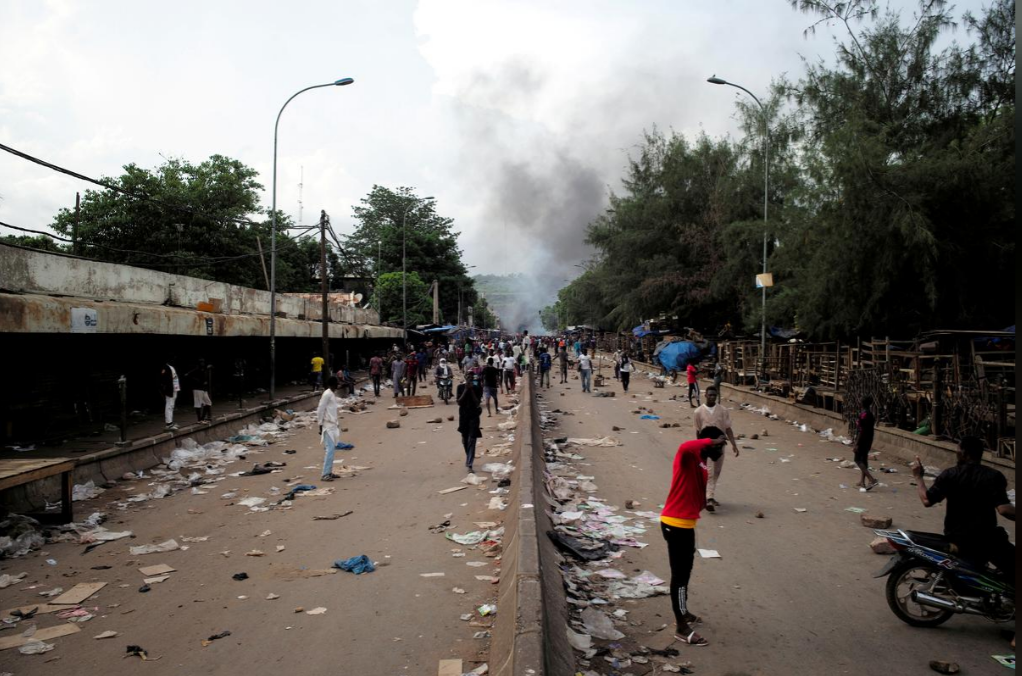
Supporters of imam Mahmoud Dicko and other opposition parties protest against President Ibrahim Boubacar Keita aimed at resolving a months-long political stand-off, in Bamako, Mali, July 10, 2020. /Reuters
Supporters of imam Mahmoud Dicko and other opposition parties protest against President Ibrahim Boubacar Keita aimed at resolving a months-long political stand-off, in Bamako, Mali, July 10, 2020. /Reuters
Malian authorities on Monday freed political opponents whom security forces had detained following recent violent protests against the president, in an apparent bid to calm seething tensions in the country.
After three days of unrest in the capital Bamako, the situation remained tense as stone-throwing protesters clashed with police, who responded with tear gas.
Eleven people have died and 124 others have been injured since then, according to a senior official at a major Bamako hospital. Witnesses said security forces fired live rounds during clashes with protesters, with the worst civil unrest t the country has seen in years.
Clashes persisted over the weekend in Bamako and continued through Monday, with much of the tension focused in the opposition-supporting Badalabougou neighbourhood. The well-off neighborhood is a stronghold of influential imam Mahmoud Dicko, who has emerged as a leader of the protest movement.
Elsewhere in Bamako, a measure of calm returned as traffic began to circulate on two of the city's main bridges, major choke points that protesters had targeted. All banks remained shut, however.
The demonstrations are being driven by a disparate group of religious leaders, political and civil society members that calls itself the June 5 Movement. A rally on Friday urging Keita to resign turned violent after protesters blocked bridges, stormed the premises of the state broadcaster and attacked the parliament building.
President Ibrahim Boubacar Keita, who has been in power since 2013, is facing a mounting wave of protests sparked by the outcome of a long-delayed parliamentary poll, but whose underlying causes include discontent over his handling of Mali's jihadist insurgency.

Smoke rises as anti-government protesters burn tires and barricade roads in the capital Bamako, Mali, July 10, 2020. /Reuters
Smoke rises as anti-government protesters burn tires and barricade roads in the capital Bamako, Mali, July 10, 2020. /Reuters
'Consensus government'
Late Sunday, representatives of the United Nations, the European Union, the African Union and West African bloc ECOWAS urged Mali to pursue political dialogue and to release the detained political opponents.
Condemning "any form of violence as a means of crisis resolution," they also attacked the use of lethal force by the security forces.
Sunday's statement voiced support for proposals put forward by ECOWAS, the 15-nation Economic Community of West African States of which Mali is a member.
The proposals call for a "consensus government of national union" and for fresh elections in constituencies whose provisional results, in the March-April elections, had been annulled by the Constitutional Court, a move that enabled several members of Keita's party to be elected.
But the June 5 movement again called on President Keita to resign on Sunday. That night, Malian Prime Minister Boubou Cisse visited Dicko, according to officials close to the imam, in an indication of attempts at dialogue. No details from that meeting have yet emerged.
In another apparent bid to soothe tensions, authorities also freed all the detained opposition figures on Monday, their lawyers told AFP. Keita has already made several attempts to ease the anger, including a promise to dissolve the Constitutional Court.
The former French colony has struggled to contain an Islamist insurgency that first emerged in the north in 2012 before spreading to the center of the country and to neighboring Burkina Faso and Niger. Thousands of soldiers and civilians have been killed and hundreds of thousands of people have been forced to flee their homes.
The UN has deployed 13,000 soldiers to Mali in one of its biggest peacekeeping operations, while France has 5,100 troops in its Barkhane anti-jihadist mission across the Sahel.
A joint EU special ops force called Takuba is to begin deployment on Wednesday, French Defense Minister Florence Parly said Sunday. A first batch of around 100 French and Estonian troops will be joined later by contingents from the Czech Republic and Sweden, Parly told the French daily La Croix, adding that Italy may also take part.
(With input from AFP)